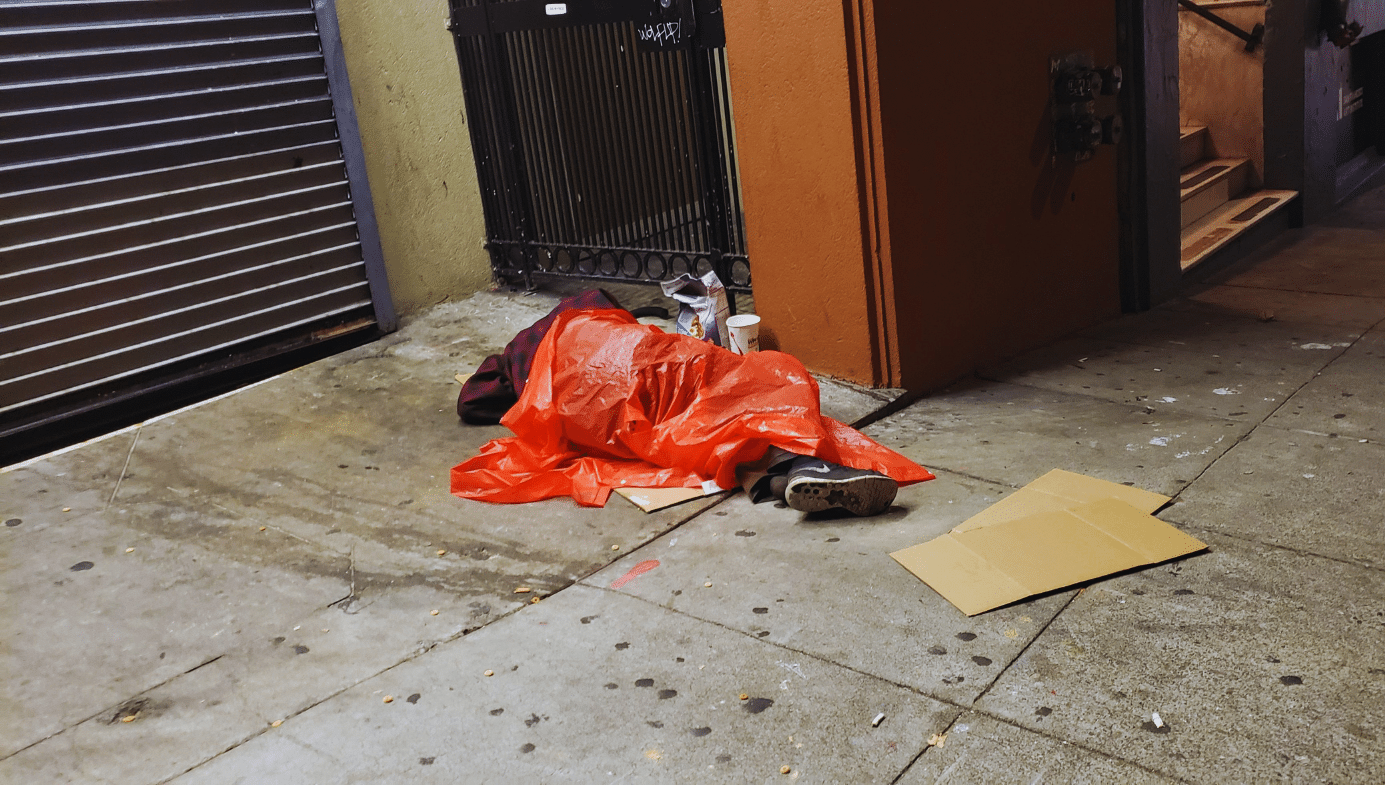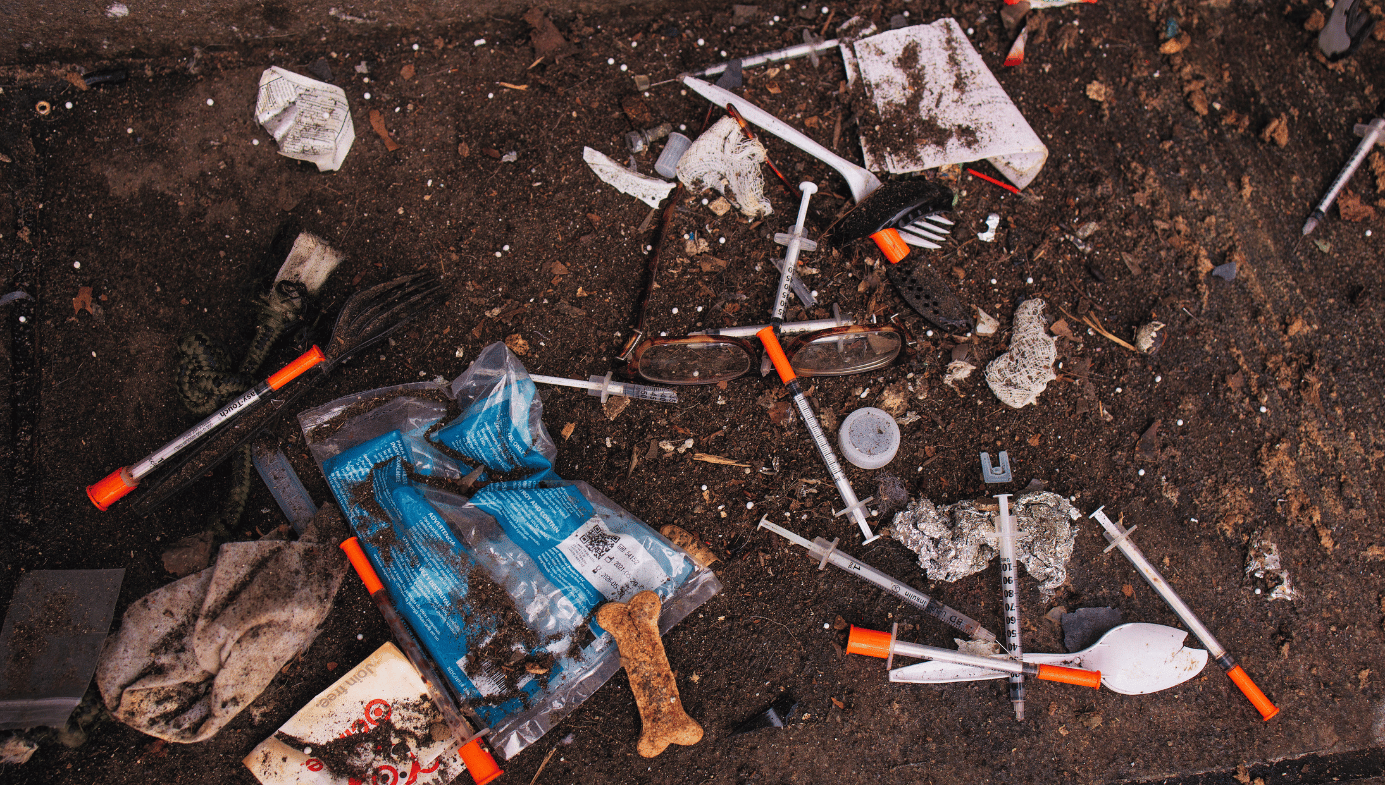poverty
Noble Intentions, Counterproductive Results: The Tragic Inefficacy of a Deontological Policy Approach
The blood shed for this right matters little to certain factions of the contemporary Left.

The Rittenhouse trial reminded us of what we already know: Americans are now more divided than ever. Questions of race, class, and fairness are important, but discourse on these issues tends to be vague, grandiose, and informed by generalities, abstractions, and righteous indignation. This is not helpful. To identify the key drivers of inequality in America, we ought to look at concrete data. When we do, we’ll see that, contrary to popular belief, progressives and conservatives actually want the same thing: to improve people’s lot in life and to protect the promise of social mobility that continues to attract more immigrants to the United States than to any other country in the world.
In Cannery Row, John Steinbeck describes Monterey, California as a place “where men in fear and hunger destroy their stomachs in the fight to secure certain food, where men hungering for love destroy everything lovable about them.” That succinctly describes the approach that many take to some of America’s most important policy issues. Both progressives and conservatives want to help people and improve their quality of life. Their policies, however, often do the opposite.
Poverty has sat at the top of the progressive docket for the better part of the last 50 years. And yet, it remains a problem. In general, the progressive response to poverty involves enlarging the welfare state, relying on tax hikes to redistribute wealth to those most in need. This approach, while noble in intention, seldom alleviates poverty in the way that progressives hope.
According to US Census data, in 2019 (pre-pandemic), poverty rates sat at 20.8 percent for Atlanta, 21.2 percent for Baltimore, 18.4 percent for Chicago, 35 percent for Detroit, 20.1 percent for Houston, 19.1 percent for Minneapolis, and 21.8 percent for St. Louis. Meanwhile, the national average sat at 11.4 percent. In other words, these cities, all of which have been governed by Democratic mayors for decades, had poverty percentages that were nearly double—and in some cases triple—the national average.
Every mayor of Atlanta for the past 142 years has been a Democrat. Every mayor of Baltimore for the past 54 years has been a Democrat. Every mayor of Chicago for the past 90 years has been a Democrat. Every mayor of Detroit for the past 59 years has been a Democrat. And every mayor of St. Louis for the past 72 years has been a Democrat. Just two of Houston’s last 14 mayors have not been Democrats; in other words, Houston has had a Democrat mayor for nearly 83 percent of the last 78 years. Minneapolis has also been governed by Democrats almost exclusively for the past 47 years—the only exception being Charles Stenvig who won as an independent in 1976.
On the other hand, cities that have been ruled by a mixture of Democrat and Republican mayors have generally performed significantly better. In 2019, Jacksonville had a poverty rate of 6.7 percent, Virginia Beach of 7.3 percent, and Miami of 14 percent. All have had a mixture of both Democrats and Republicans, illustrating that a middle-ground approach may be more conducive to alleviating poverty than a purely progressive one.
If progressives want to address poverty, perhaps they should consider decreasing the size of their governments, scaling back welfare, and limiting social programs and entitlements. Instead of taking these steps, they tend to argue that it’s not their policy failures that have resulted in poor outcomes but the fault of systemic racism. Democrats and their activist allies point to police brutality as the most obvious example of this problem. And the media attention that police brutality receives seems to indicate that it is widespread, ubiquitous, and indeed systemic.

In fact, police brutality is rare. Many of the instances routinely cited by progressives as irrefutable examples of discriminatory policing are not straightforward, and do not demonstrate that a victim was targeted because they were black. The most well-known cases of the last year—George Floyd, Breonna Taylor, and Ma’Khia Bryant—were unquestionably tragic. But even if we grant that these three cases were, indeed, instances of racial discrimination, their deaths were still isolated incidents, statistical outliers unrepresentative of a systemic or widespread problem.
The DOJ’s Bureau of Justice Statistics estimates that 2018 saw 61,500,000 police interactions. The Washington Post Police Shooting Database put the number of police shootings in 2019 at 999. Within this group, 54 suspects were unarmed. Of the 54 unarmed suspects, 12 were black, and 26 were white. In other words, assuming that 2019 had a similar number of police interactions as 2018, 0.00002 percent of police interactions resulted in the death of unarmed black suspects. One is too many, of course, but it is worth remembering that, statistically, in a country of 328 million people with more than 60 million police interactions per year, the sample size is incredibly large. And with such a vast sample size, extremely unlikely events are more likely to occur, even if it is only 0.00002 percent of the time. The notion that young black men are being systematically hunted is simply untrue. And it’s incredibly damaging for black youth to grow up believing that it is.
It is true that blacks make up a larger share of police shootings relative to their population size than whites. But to appreciate what this shows, the statistic must be considered contextually. In 2019, of the 328 million person population in the US, 14 percent was black and 60.1 was white. Meanwhile, 251 blacks (.0005 percent of the black population) and 424 whites (.0002 percent of the white population) were killed by police. These totals include both armed and unarmed suspects. Police shootings, however, are fairly well predicted by crime rates, and blacks commit a disproportionate amount of crime relative to their percentage (14 percent) of the population. In 2019, blacks accounted for 36.4 percent of the arrests for violent crime (aggravated assault, murder, nonnegligent manslaughter, rape, and robbery) and 41.5 percent of arrests for property crimes (arson, burglary, larceny-theft, and motor-vehicle theft). Blacks also perpetrated 39.6 percent of the country’s homicides.
Progressives tend to focus on only on the first cited statistic—that blacks make up a larger share of police shootings relative to their population size than whites—and to view it in a vacuum. This is profoundly misleading and results in backwards policies, such as the rallying cry of BLM and its activist allies to “Defund the Police.” In many cases, they have gotten their way, and police presence has been scaled back. The result has been a spike in crime in many of the places where the policy has been enacted, a phenomenon sometimes referred to as the Ferguson effect.
If progressives care about saving black lives as much as they purport to, perhaps they should consider that decreased police presence has done the opposite.

Affirmative Action likewise hurts its supposed beneficiaries more than it helps them. Even traditionally progressive outlets like the Atlantic and Slate have run articles criticizing the policy. Nonetheless, it persists. Championed by progressives, affirmative action has not demonstrably helped minority populations. Moreover, an unfortunate side-effect of the policy is that it sometimes discredits high-achieving minorities in the eyes of their peers. This is grotesquely unfair to those who have to bear the burden of knowing that no matter how hard they work, they may be seen as less deserving because the system conferred an unfair advantage for which they never asked. As with metropolitan governance, a complete overhaul is not necessarily required. An approach that emphasizes diversity of thought, however, would likely produce superior results more amenable to all parties.
Finally, there is the issue of speech. Permissive speech is a cornerstone of free societies and has been since the Enlightenment, when it was codified by John Locke in his Two Treatises of Government in 1689 in Britain, by the Declaration of the Rights of Man and Citizen in 1789 in France, and by the Declaration of Independence in 1776 in the United States. The blood shed for this right matters little to certain factions of the contemporary Left. Each year, progressives eagerly concede more of their autonomy to authority in the name of equity and inclusion. As a result, the window of acceptable speech has shrunk and even disagreeing with somebody about what does and does not constitute an offence can be construed as offensive. Again, the intention of fostering an inclusive environment is a good one. But the consequences of over-policing speech far outweigh any good it may bring and fall most heavily on marginalized populations who have benefitted from the right to free expression and in whose name progressive censorship is most often justified.
It’s worth bearing in mind that discrepancies between intention and outcome are not simply a problem on the Left. Conservatives have also stubbornly pursued policies that demonstrably do not work.
The human consequences of the War on Drugs, declared by the Nixon administration in the 1970s, have been dire and the progress dismal. Like many other things, the war began with honorable intentions: cleaning up the streets and legitimately addressing issues of illicit substance abuse. In 2011, however, the non-partisan Global Commission on Drug Policy, whose leadership includes Kofi Annan, Paul Volker, Richard Branson, and Louise Arbour, released a report which stated that “The global war on drugs has failed, with devastating consequences for individuals and societies around the world.” Even the Wall Street Journal has run at least half a dozen op-eds expressing dismay at this policy failure. This ought to have spurred conservative reconsideration years ago. Reforms to drug policy have at last slowly begun, but more will be needed if we are to address drug-related issues in the United States.

The War on Terror is another recent example of counterproductive conservative actions. In the wake of 9/11, conservatives introduced a suite of domestic and foreign policy initiatives intended to keep Americans safe. This, prima facie, seemed sensible enough. While success is difficult to measure, and while it must be admitted that counter-terrorism initiatives have achieved some of their goals, the consequences of many of these policies are irreconcilable with liberal democratic principles and have sometimes set us back more than they’ve moved us forward. National security apparatuses that surveil citizens en masse and have unapologetically affronted civil liberties have not necessarily made America safer in the way that conservatives envisioned they would. Nor has some of our engagement in open-ended and intractable conflicts overseas.
Both progressives and conservatives are bound to get it wrong sometimes, no matter how worthy their intentions. Inflexible ideological assumptions and value judgements are not always well-suited to addressing the problems of a complex world filled with conflicting interests and the perverse and contradictory impulses of human nature. It is for this reason that consequentialism ought to be privileged over deontology when evaluating the efficacy of policies. When they have exhausted their trial period and failed to achieve their intended goals, policies ought to be scrapped or at least re-evaluated on a cost-benefit basis.
Progressives and conservatives would do well to remember that they want the same thing: to improve people’s lot in life. Righteous indignation and the desire to have one’s own worldview vindicated in a zero-sum ideological contest is causing us to forget what is really important—a focus on practical solutions to complex problems that produce beneficial outcomes and increase human flourishing. A consequentialist policy approach focused on outcomes rather than categorical imperatives can help humanize opponents, encourage a spirit of collaboration and cooperation, and assist us as we work towards more effective solutions.






